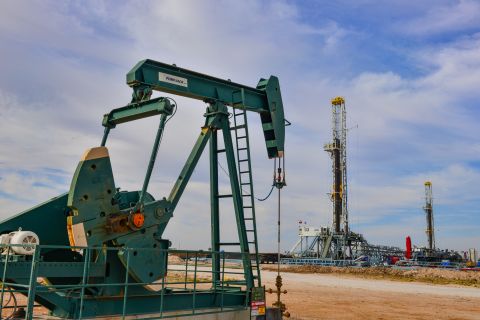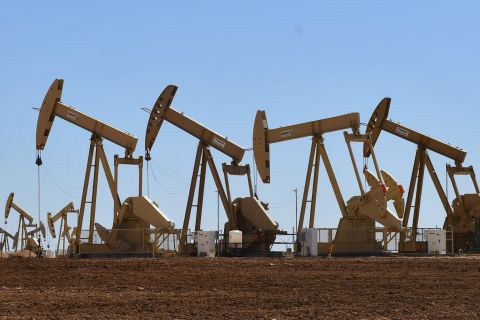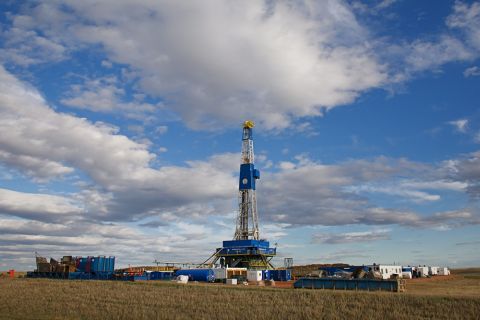Cheap renewable energy, climate policies and the coronavirus are pushing fossil fuel companies towards a process of "terminal decline" that could trigger a new financial crisis unless regulators act, according to a study published on June 4.
Carbon Tracker, a think-tank that assesses the risks to investments in oil, natural gas and coal posed by a transition to cleaner energy, said demand for these commodities might never fully recover from a collapse triggered by the pandemic.
"We are witnessing the decline and fall of the fossil fuel system," said Kingsmill Bond, a co-author.
Technological innovation and policy support was leading to peak fossil fuel demand in "sector after sector and country after country, and the COVID-19 pandemic has accelerated this," Bond said. "We may now have seen peak fossil fuel demand as a whole."
Whether and how fossil fuel demand may rebound after the pandemic is hotly contested, with many projections assuming that demand for oil, in particular, could steadily return as lockdowns lift.
Nevertheless, Carbon Tracker's work is widely-watched because of its role in informing international regulatory initiatives on climate change spearheaded by U.N. envoy Mark Carney, a former governor of the Bank of England.
The report said that companies across the fossil fuels system are worth $18 trillion in listed equity, a quarter of the value of global equity markets. They also account for trillions of dollars of corporate bonds and bank debt.
With this chunk of the world economy increasingly vulnerable to disruption, regulators must ensure that companies properly account for the likely impact of the 2015 Paris climate accord on their future profitability, the report said.
Recommended Reading
Mighty Midland Still Beckons Dealmakers
2024-04-05 - The Midland Basin is the center of U.S. oil drilling activity. But only those with the biggest balance sheets can afford to buy in the basin's core, following a historic consolidation trend.
Life on the Edge: Surge of Activity Ignites the Northern Midland Basin
2024-04-03 - Once a company with low outside expectations, Surge Energy is now a premier private producer in one of the world’s top shale plays.
Mesa III Reloads in Haynesville with Mineral, Royalty Acquisition
2024-04-03 - After Mesa II sold its Haynesville Shale portfolio to Franco-Nevada for $125 million late last year, Mesa Royalties III is jumping back into Louisiana and East Texas, as well as the Permian Basin.
Analyst: Chevron Duvernay Shale Assets May Sell in $900MM Range
2024-01-29 - E&Ps are turning north toward Canadian shale plays as Lower 48 M&A opportunities shrink, and Chevron aims to monetize its footprint in Alberta’s Duvernay play.
Silver Hill Energy Enters Bakken with Liberty Resources Acquisition
2024-01-31 - Silver Hill Energy Partners LP is getting into the Bakken in North Dakota through the acquisition of Liberty Resources II.





